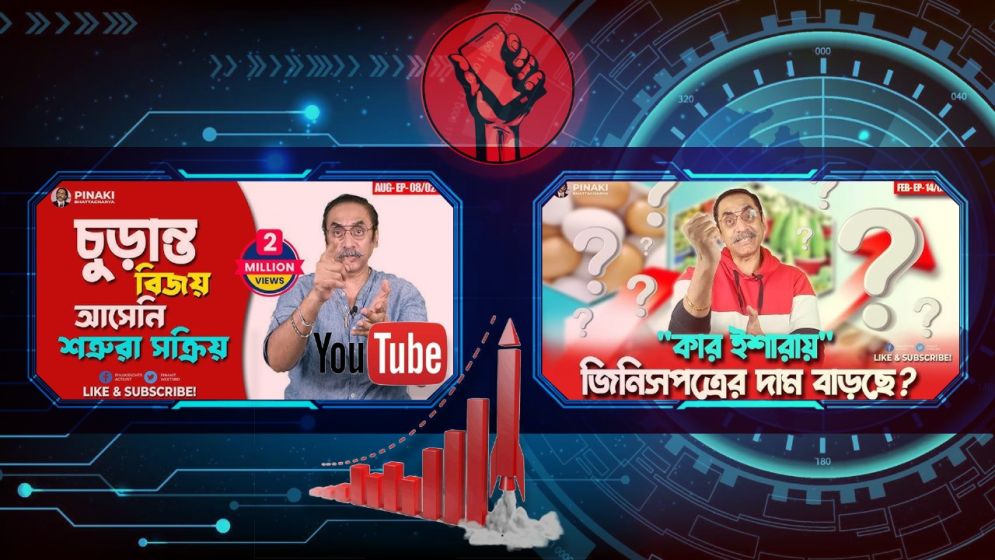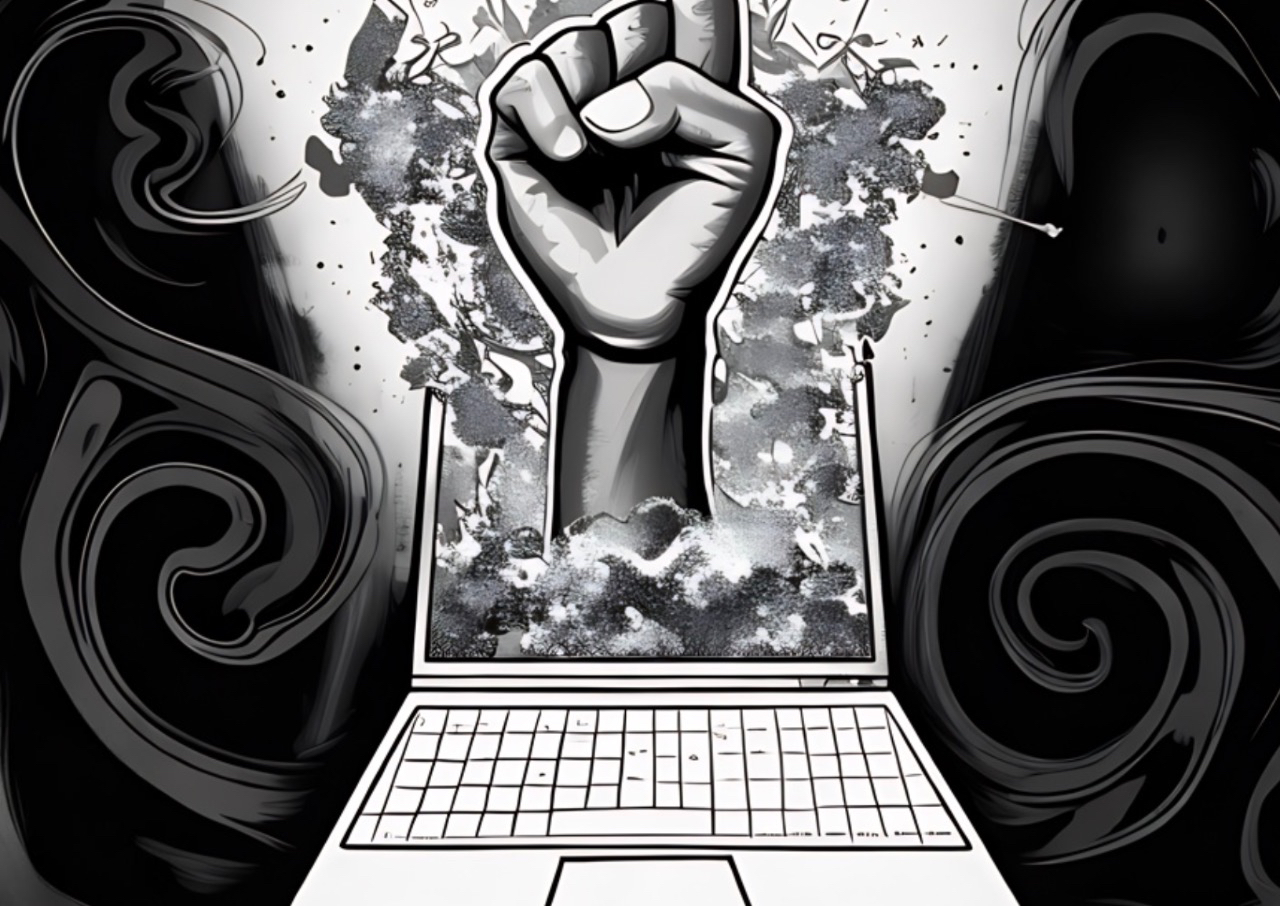Love, hate, or indifference….Pinaki Bhattacharya makes you pay attention

It’s a misstep to suggest that Pinaki Bhattacharya caters exclusively to one type of viewer. The reality is far more nuanced and complex than that. His content operates on two distinct, yet equally potent, levels.
On one hand, there’s the “educated” audience: the political cognoscenti who hang on his every word, eager to decode the intricate webs he weaves between current events and their political ramifications.
This audience thrives on Pinaki’s ability to connect the dots – to see, as he does, the larger forces at play in shaping not just our world, but our future.
But then there’s the other side of the equation, the more elusive, broader audience: the individuals who tune in for his brand of biting humor, sharp rhetoric, and unapologetic putdowns.
This is where things get interesting. Whether they’re nestled in the urban core of the Tri-State area or in a rural village miles away from any media epicenter, his content cuts across boundaries. From the intellectual elite to the working class, his appeal transcends geographic and socioeconomic divides.
This complexity doesn’t show up in the viewer stats, though. The numbers likely don’t do justice to his reach. With countless reels, TikTok clips, and bite-sized videos circulating widely– often without attribution or recognition– it’s clear that his true audience is far larger than the surface metrics suggest.
There are hundreds, perhaps thousands, of viral snippets that keep the conversation going long after the original post fades from view.
Essentially, Pinaki has managed to do what few others have: He’s creatively synthesized various modes of public communication to open up new markets. Is he merely “preaching to the choir,” or is he pulling off a political conversion?
That’s a question probably for a deeper analysis, but there’s no doubt that within his own political sphere, he’s shattered long-standing barriers.

An enigmatic force
Pinaki also doesn’t just follow the news; he shapes it. Even his fiercest critics can’t ignore the issues he brings to the forefront. Whether they like it or not, they’re forced to respond to the conversations he instigates.
His power to dictate the political agenda has become a palpable force, one that shifts the focus away from what others want to talk about, and forces them to confront the issues he’s raised.
Pinaki has evolved into something of a political enigma, and to reduce him to a mere pundit or commentator is to miss the forest for the trees.
His ability to weather storms, absorb any attack, and yet only come out stronger, is a testament to his unique position in the media and political landscape.
First, let’s talk about the aura of celebrity he’s cultivated. In an age where controversy can either break or make a public figure, Pinaki has made it clear: Any publicity is good publicity.
Whether it’s the salacious rumors surrounding figures like Nadia Islam or Zulkarnine Saer, or leaks of private communications–nothing sticks. Nude photos, scandalous emails, or unflattering professional attacks? He doesn’t merely endure them; he flips them on their head.
What others would consider career-ending moments, he recontextualizes, using them as springboards to amplify his narrative. His resilience has made him almost anti-fragile–immune to the typical downward spiral of scandal.
When political rivals from the Awami League or even the amateurish jabs from the BNP land their blows, Pinaki absorbs them with poise, turning every attack into an opportunity to further cement his influence.

A new era of activism
Beyond the controversies, Pinaki also has set a new standard for activism in the digital age–especially for Bangladeshis scattered across the globe.
In a country where civil liberties are often under siege, he has, knowingly or not, made one thing clear: The safest, most effective way to engage in political activism concerning Bangladesh is to live abroad.
From the comfort of overseas civility, the Bangladeshi diaspora can speak freely, unburdened by the oppressive constraints that silence those within the borders.
In many ways, he has unwittingly become the prototype for this new wave of activism. Given the sycophantic tendencies of many local intellectuals and the co-opted civil society, the diaspora’s activism is poised to be a major force in shaping the political future of Bangladesh.
While those on the ground may face suppression and retaliation, those in the diaspora can engage with little to no personal consequence, their voices reaching an ever-growing audience and having an outsized impact.
Personally, I follow Pinaki not just as a political figure, but as a phenomenon. I watch how he manipulates the game–how he plays the currents of public opinion, how he strategically amplifies his own voice, and how, with calculated precision, he elicits a vast array of emotions and reactions from the public.
Whether through humor, outrage, or incisive critique, his ability to tap into the collective psyche of his audience is uncanny.
Pinaki’s true power probably lies not just in his political commentary, but in his mastery of the political spectacle. He has transcended the role of a mere voice in the crowd; he is the crowd.
He is rather an architect of political discourse than a commentator–shaping public discourse in ways few others can. To deny his influence is to ignore the direction in which political dialogue is headed.
—
Nayel Rahman is a political analyst

